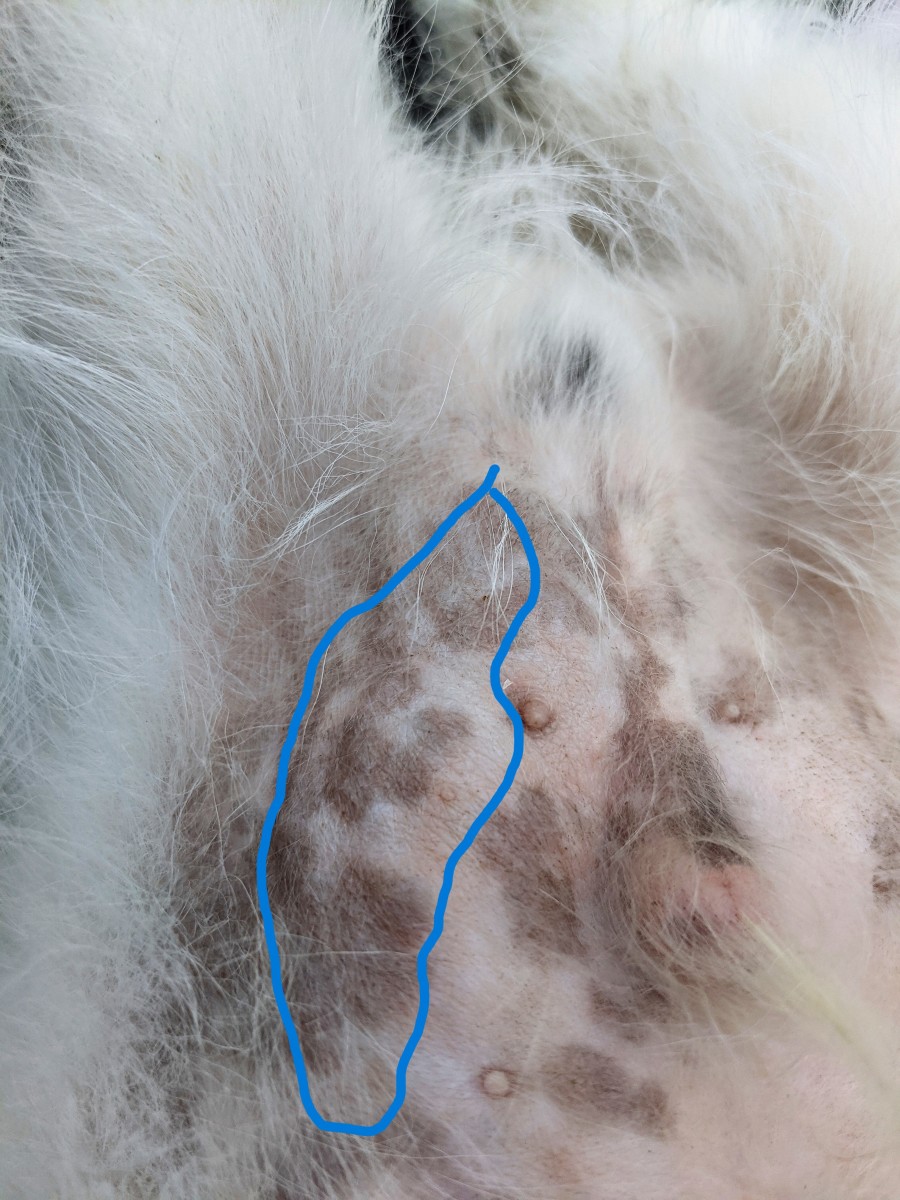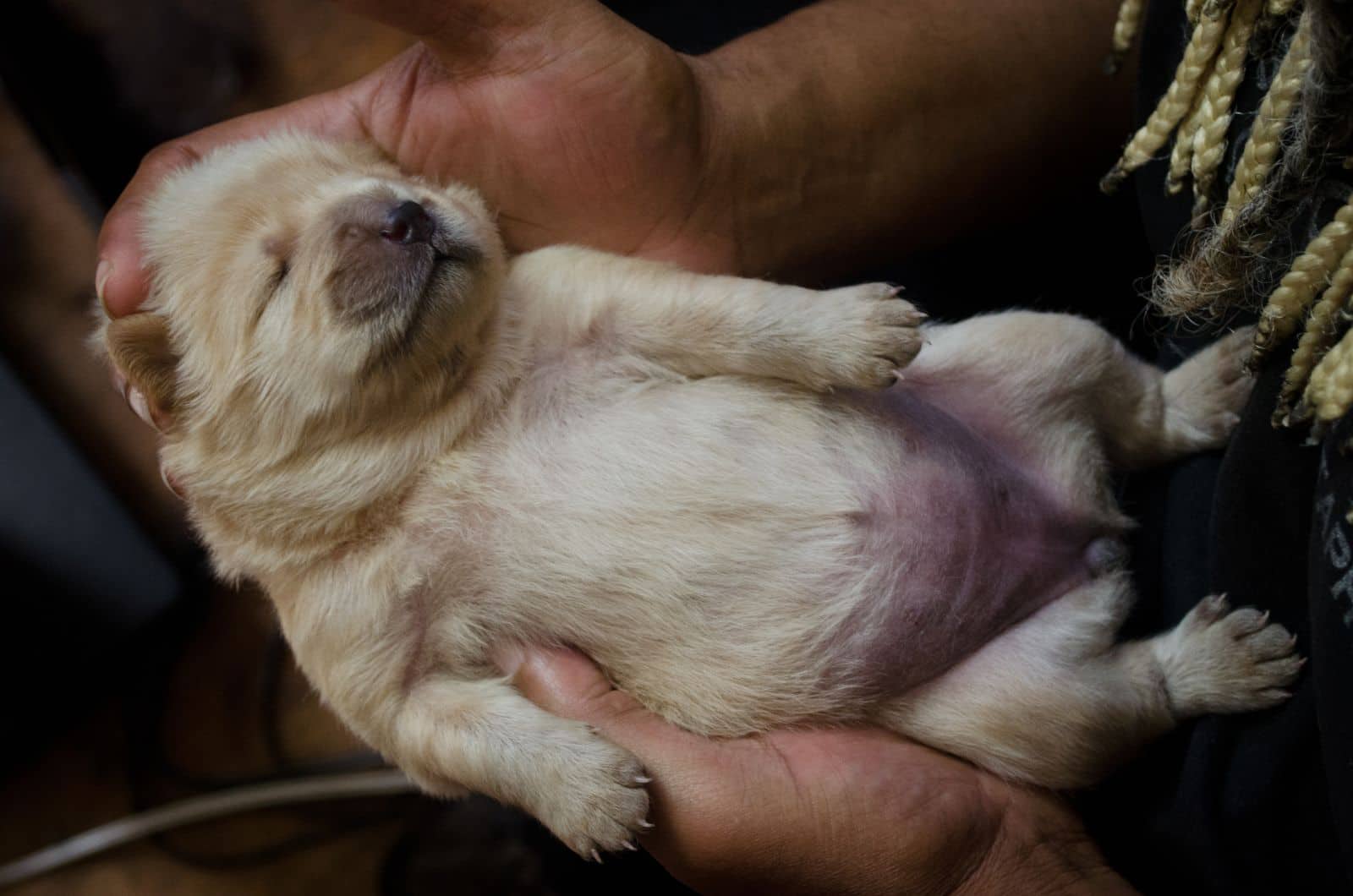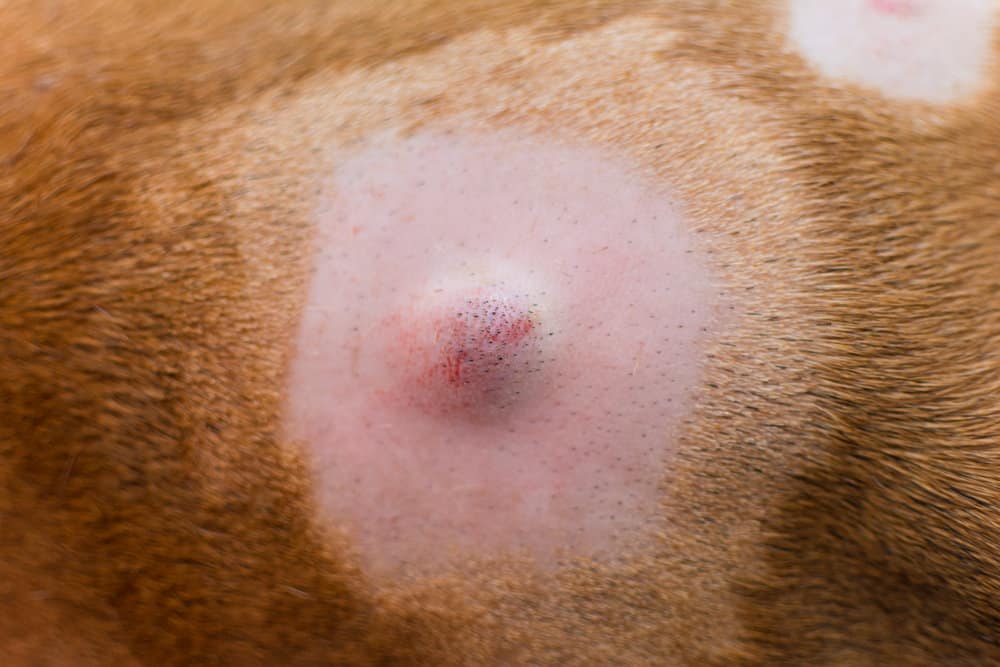So, you've noticed a lump on your puppy's belly, and now you're probably freaking out a little. That's totally understandable because, as a pet parent, anything out of the ordinary with your furry baby can send you into panic mode. But before you start googling every worst-case scenario, let's take a deep breath and dive into what could be causing that lump on your puppy's belly. Spoiler alert: it's not always as scary as it seems.
Let's face it, puppies are like little bundles of energy wrapped in fur, and they're prone to all sorts of weird little quirks. From chewing on random objects to rolling around in the dirt, they're basically the ultimate troublemakers. But when it comes to physical abnormalities, like a lump on their belly, it's important to know what's normal and what's not. In this article, we're going to break it down for you step by step so you can make an informed decision about your pup's health.
Whether you're a first-time puppy owner or a seasoned dog parent, understanding the possible causes of a lump on your puppy's belly is crucial. We'll cover everything from harmless lumps to more serious conditions, and by the end of this article, you'll have a clearer picture of what might be going on with your furry friend. So, grab a cup of coffee (or maybe a glass of wine), and let's get into it!
Read also:Lexie Hulls Personal Life A Closer Look Into The Stars Journey
What Could That Lump on Puppy Belly Mean?
When you notice a lump on your puppy's belly, the first thing to do is not to freak out immediately. I know, easier said than done, right? But trust me, there are plenty of reasons why your puppy might have a lump, and not all of them are bad news. Let's break down some of the most common causes:
Puppy Fat Deposits
One of the most common reasons for a lump on puppy belly is simply fat deposits. Puppies are growing rapidly, and their bodies are constantly changing. Sometimes, these changes can result in little lumps that feel soft to the touch. In most cases, these fat deposits are harmless and will go away as your puppy matures. Think of them as puppy "baby fat" that they'll eventually outgrow.
Hernias: A Common Culprit
Another possibility is a hernia, which occurs when an organ or tissue pushes through a weak spot in the surrounding muscle or tissue wall. In puppies, umbilical hernias are pretty common and can appear as a lump near the belly button. While some hernias are harmless and will close up on their own, others may require veterinary intervention. If the lump seems to change size or becomes painful to your pup, it's definitely worth a trip to the vet.
How to Examine the Lump on Puppy Belly
Now that you know some of the potential causes, it's time to take a closer look at that lump on your puppy's belly. But before you start poking and prodding, remember to stay calm and gentle. Your puppy can sense your energy, and if you're stressed, they might get scared. Here's how you can examine the lump:
- Start by gently feeling the lump with your fingers. Is it soft or hard? Does it move around or feel attached to something underneath?
- Check if the lump is painful. If your puppy winces or tries to get away when you touch it, that could be a sign of something more serious.
- Observe if the lump changes in size or shape over time. This can give you clues about whether it's something that needs immediate attention.
Remember, your observations are important, but they're no substitute for a professional diagnosis. If you're unsure, always err on the side of caution and consult your vet.
When Should You Worry About a Lump on Puppy Belly?
While some lumps on puppy belly are completely harmless, others might be a sign of something more serious. Here are a few red flags to watch out for:
Read also:Most Expensive Houses On Zillow Your Ultimate Guide To Luxury Real Estate
Signs of Infection
If the lump is red, swollen, or oozing pus, it could be a sign of an infection. Infections can happen due to injuries, insect bites, or even underlying health issues. If you notice any of these symptoms, it's important to get your puppy to the vet ASAP. Antibiotics or other treatments might be necessary to prevent the infection from spreading.
Abnormal Growth
Another concern is abnormal growths, which could be benign or malignant. While cancer in puppies is relatively rare, it's not impossible. If the lump grows rapidly, feels hard, or seems to be causing discomfort, don't wait to seek professional advice. Early detection is key when it comes to treating any kind of abnormal growth.
Common Treatments for Lumps on Puppy Belly
Depending on the cause of the lump, your vet might recommend different treatments. Here's a quick rundown of what to expect:
Medications
If the lump is caused by an infection, your vet might prescribe antibiotics to clear it up. In some cases, topical creams or ointments might also be recommended. Make sure to follow the vet's instructions carefully and finish the entire course of medication, even if the lump seems to improve.
Surgical Intervention
For hernias or other structural issues, surgery might be the best option. Don't worry, though—puppies are pretty resilient, and most recover quickly from surgery. Your vet will explain the procedure and what to expect during the recovery period. Just make sure to keep your pup calm and avoid any strenuous activities while they heal.
Preventing Lumps on Puppy Belly
While some lumps are unavoidable, there are steps you can take to minimize the risk of your puppy developing certain types of lumps:
Regular Vet Check-Ups
One of the best ways to catch potential issues early is by scheduling regular vet check-ups. Your vet can examine your puppy thoroughly and identify any abnormalities before they become serious problems. Plus, it's a great opportunity to ask questions and get advice on keeping your pup healthy.
Proper Nutrition
Feeding your puppy a balanced diet is crucial for their overall health and development. Make sure they're getting all the nutrients they need to grow strong and healthy. Avoid giving them table scraps or foods that could cause digestive issues, which might contribute to the formation of lumps.
Understanding the Emotional Impact
As a pet parent, discovering a lump on your puppy's belly can be emotionally draining. It's natural to worry and wonder if you're doing everything right for your furry friend. But remember, you're not alone in this journey. Millions of puppy parents have faced similar situations, and most of the time, everything turns out just fine.
Talking to Other Pet Owners
Joining a community of fellow pet owners can be a great way to share experiences and get support. Whether it's an online forum or a local dog park, connecting with others who understand what you're going through can be incredibly comforting. Plus, you might pick up some helpful tips along the way!
Real-Life Stories: Puppy Lump Success Stories
To give you some peace of mind, let's look at a few real-life stories of puppy owners who dealt with lumps on their pups' bellies:
Case Study 1: Max's Umbilical Hernia
Max, a golden retriever puppy, was born with a small umbilical hernia that caused a lump on his belly. His owner, Sarah, was initially worried but decided to monitor it closely. Over time, the hernia closed up on its own, and Max grew up to be a healthy, happy dog. Moral of the story: sometimes, nature takes care of things on its own!
Case Study 2: Bella's Fat Deposit
Bella, a chihuahua mix, developed a soft lump on her belly that her owner, Mark, thought was concerning. After a trip to the vet, it was determined to be a harmless fat deposit that eventually disappeared as Bella grew older. Mark learned that not every lump is something to panic about, and regular vet check-ups are essential for peace of mind.
Final Thoughts: What You Need to Know About a Lump on Puppy Belly
In conclusion, finding a lump on your puppy's belly doesn't always mean something terrible is happening. While some lumps require veterinary attention, others are completely normal and will resolve on their own. By staying informed, monitoring your puppy's health closely, and consulting with your vet when necessary, you can ensure your furry friend stays happy and healthy.
So, the next time you notice a lump on your puppy's belly, take a deep breath and remember all the information we've covered here. And don't forget to give your pup an extra snuggle—they probably have no idea what's going on, but they'll appreciate the love and attention!
Now, it's your turn. Have you ever dealt with a lump on your puppy's belly? Share your story in the comments below, and let's keep the conversation going. Together, we can help other puppy parents navigate this tricky situation!
Table of Contents
- Why a Lump on Puppy Belly Could Be a Sign of Something Bigger
- What Could That Lump on Puppy Belly Mean?
- How to Examine the Lump on Puppy Belly
- When Should You Worry About a Lump on Puppy Belly?
- Common Treatments for Lumps on Puppy Belly
- Preventing Lumps on Puppy Belly
- Understanding the Emotional Impact
- Real-Life Stories: Puppy Lump Success Stories
- Final Thoughts: What You Need to Know About a Lump on Puppy Belly


